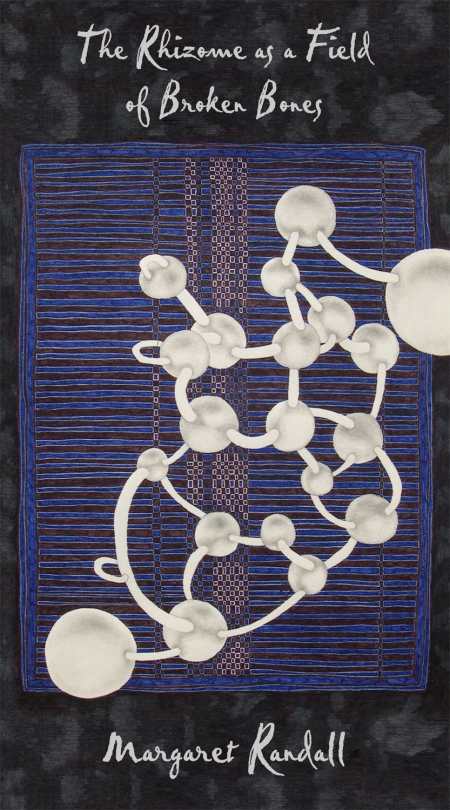It looks like you've stumbled upon a page meant to be read by our code instead of viewed directly. You're probably looking for this page.

The Rhizome as a Field of Broken Bones
In Randall, readers find a reassuring voice—a strong, assertive narrator whose bravery resonates.
Veteran poet Margaret Randall does not disappoint with her latest collection of poetry, The Rhizome as a Field of Broken Bones. A feminist and political activist of many years, Randall has established herself as a prolific storyteller through the more than one-hundred books of poetry she has written. In this newest volume, she weaves together the concepts of memory, borders, and boundaries throughout the narrative, like lines on a map, routing the topography of her life experiences.
Randall ignores chronology in favor of intrigue, and the dense, moving collection seamlessly flows from poem to poem. She quickly proves herself to be trustworthy—her tart, honest examination of human history is written in the first person, which makes it feel as though her journey is a shared experience. She has carefully mapped out the narrative, and every poem feels deliberate. In Randall, readers find a reassuring voice—a strong, assertive narrator whose bravery resonates.
Randall depicts the shadow side of humanity in elegant, lyrical language. In one particularly poignant poem, “Writing on the Body,” Randall describes how the granddaughter of a Jewish man who was persecuted by the Nazis tattoos herself with her grandfather’s concentration camp numbers. The poem ends with the lines, “Today in a city where she hopes / terror can be kept at bay / Yosef’s granddaughter Eli / shows him his numbers on her young flesh. / He bends to kiss the bridge of memory.” The beauty of the words Randall strings together lightens but does not diminish the power of the poem. This tenderness is a signature of Randall’s.
A perpetually inquisitive poet, Randall poses some of life’s larger questions without making them feel overwrought. In the poem “Clean Red and Black,” it is with earnest concern that she asks, “We’ve told the world, / When will the world listen?” Questions such as these are emotionally, physically, and spiritually charged, and they immediately draw her readers in.
In the last line of the last poem in the collection, Randall writes, “and know this: every letter counts.” This line aptly describes the entire volume. Randall’s poetry seeps into the reader’s pores and lingers like a shiver down the spine long after the last words have been read, leaving the reader anxious for more.
Reviewed by
Jacquelyn Lazo
Disclosure: This article is not an endorsement, but a review. The publisher of this book provided free copies of the book to have their book reviewed by a professional reviewer. No fee was paid by the publisher for this review. Foreword Reviews only recommends books that we love. Foreword Magazine, Inc. is disclosing this in accordance with the Federal Trade Commission’s 16 CFR, Part 255.